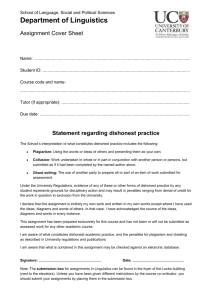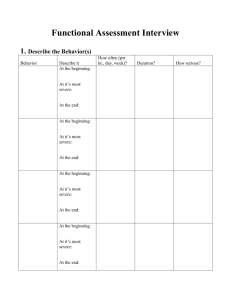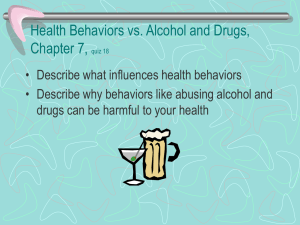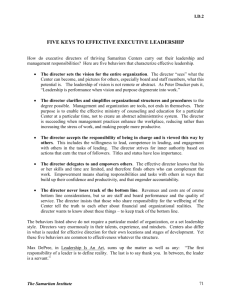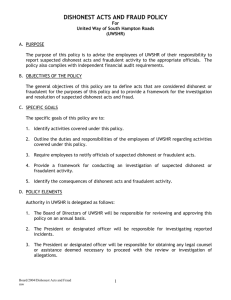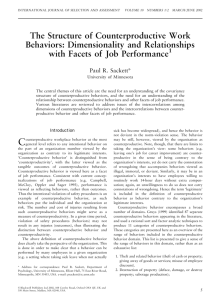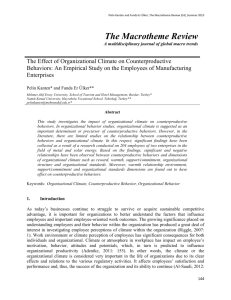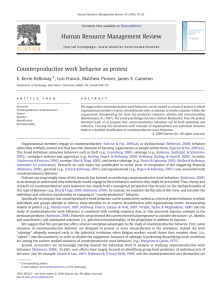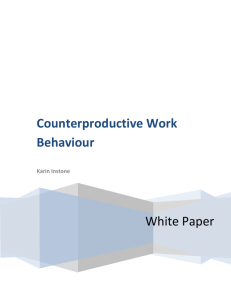Candidate Integrity - Applied Assessments, Inc.
advertisement
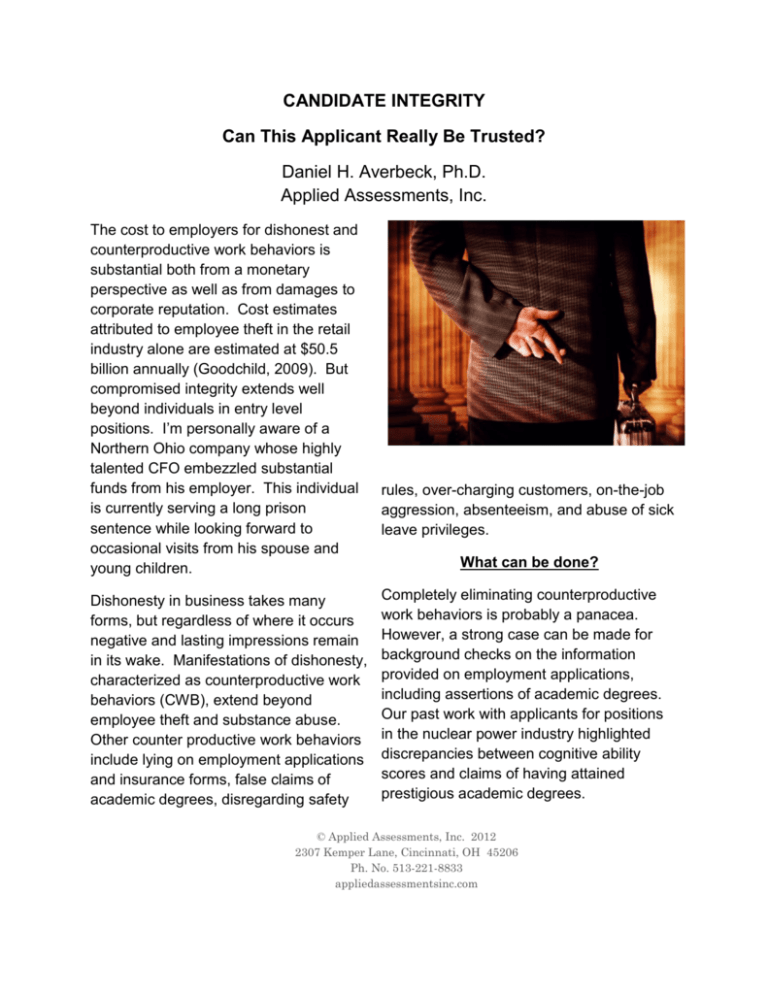
CANDIDATE INTEGRITY Can This Applicant Really Be Trusted? Daniel H. Averbeck, Ph.D. Applied Assessments, Inc. The cost to employers for dishonest and counterproductive work behaviors is substantial both from a monetary perspective as well as from damages to corporate reputation. Cost estimates attributed to employee theft in the retail industry alone are estimated at $50.5 billion annually (Goodchild, 2009). But compromised integrity extends well beyond individuals in entry level positions. I’m personally aware of a Northern Ohio company whose highly talented CFO embezzled substantial funds from his employer. This individual is currently serving a long prison sentence while looking forward to occasional visits from his spouse and young children. Dishonesty in business takes many forms, but regardless of where it occurs negative and lasting impressions remain in its wake. Manifestations of dishonesty, characterized as counterproductive work behaviors (CWB), extend beyond employee theft and substance abuse. Other counter productive work behaviors include lying on employment applications and insurance forms, false claims of academic degrees, disregarding safety rules, over-charging customers, on-the-job aggression, absenteeism, and abuse of sick leave privileges. What can be done? Completely eliminating counterproductive work behaviors is probably a panacea. However, a strong case can be made for background checks on the information provided on employment applications, including assertions of academic degrees. Our past work with applicants for positions in the nuclear power industry highlighted discrepancies between cognitive ability scores and claims of having attained prestigious academic degrees. © Applied Assessments, Inc. 2012 2307 Kemper Lane, Cincinnati, OH 45206 Ph. No. 513-221-8833 appliedassessmentsinc.com Candidates whose belief systems affirm that a certain amount of employee theft is expected and condoned are more likely to engage in these acts when afforded the opportunity. Attitudes reflecting beliefs that everyone can be expected to steal from his/her employer, and that dishonest behavior is generally easy to hide, often signal individuals who are most susceptible to dishonest acts. Subsequent verification checks with several universities confirmed suspicions that the degrees were never completed and in some cases that the individuals had never been enrolled. With the preponderance of degree granting institutions, including many that offer degrees entirely on-line, the prevalence of this form of dishonesty can be expected to increase. Selection assessments can also serve to impede counterproductive work behaviors by identifying applicants most likely to engage in dishonest acts. Integrity tests are structured around several key psychological principles. First, past behavior is frequently a valuable predictor of future behavior. Test items on which applicants admit to past discretions often predict the commission of future dishonest acts. Second, intentions and attitudes about counterproductive work activities also influence future behavior. Two approaches have been developed for measuring the integrity of job candidates. Overt integrity tests measure the attitudes and intentions of applicants toward counterproductive work behaviors. Most overt integrity tests include items that address rationalizations for dishonest behaviors, estimations about the ease in committing and getting away with dishonest acts, beliefs about the frequency of dishonest behavior, attitudes about punishing and whistle-blowing on wrongdoers, and selfadmissions of past dishonest acts. Covert integrity measures are derived from more broad range personality assessments. Inferences about the integrity of candidates are derived from a combination of scales that address social conformity, impulse control, risk taking, and problems with authority. © Applied Assessments, Inc. 2012 2307 Kemper Lane, Cincinnati, OH 45206 Ph. No. 513-221-8833 appliedassessmentsinc.com References Do Integrity Tests Work? Research on the validity of integrity tests has demonstrated their effectiveness in predicting counterproductive work behaviors, overall job performance, training success, and involuntary turnover. Although both overt and covert integrity assessment methods have demonstrated validity, overt integrity tests have shown the most success in reducing counterproductive work behaviors. Cognitive ability measures and aptitude tests maintain a sizeable advantage when the objective is to predict future job performance and success in training programs. For many candidate selection programs, a combination of job-related ability and aptitude measures paired with a well-designed integrity test offers a cost effective strategy for hiring capable and honest employees. Berry, C. M., Sackett, P. R., & Wiemann, S. (2007). A review of recent developments in integrity test research. Personnel Psychology, 60, 271-301. Goodchild, J. (2009). Retail shrink, theft up in 2009: CSO security and risk report. Retrieved from http://www.csoonline.com/article/print50 7263. Ones, D. S., Viswesvaran, C., & Schmidt, F. L. (1993). Comprehensive meta- analysis of integrity test validities: Findings and implications for personnel selection and theories of job performance. Journal of Applied Psychology, 78, 679-703. Van Iddekinge, C. H., Roth, P. L., Raymark, P. H., & Odle-Dusseau, h. N. (2012). The criterionrelated validity of integrity tests: An updated meta- analysis. Journal of Applied Psychology, 97, 499-530. Assumptions about the honesty of job applicants can be costly and embarrassing! For more information about how integrity assessments might apply to your selection process please be sure to give us a call. © Applied Assessments, Inc. 2012 2307 Kemper Lane, Cincinnati, OH 45206 Ph. No. 513-221-8833 appliedassessmentsinc.com
